Product & Lifestyle Photography for E-commerce
Poor Product Quality Will DESTROY Your E-Commerce Brand (How to Ensure Quality)
When starting an e-commerce brand, there are many things to consider that may not even be directly related to the core of your product. Logistics, marketing strategy, selling platform factors, and inventory management practices are just a few things you’ll need to master. The importance of getting these ideas right may seem obvious. But there’s another equally important, often overlooked factor that may determine whether your brand sinks or swims—product quality.
It may seem like a no-brainer that the quality of the products you sell is a reflection of your brand as a whole. If you’re in the market to sell cheap, fast-fashion, or items that can be used only a couple times, then break—okay. However, this may not be a very good long-term strategy if you’re banking on Amazon as a significant sales channel. Nine times out of ten, selling quality products that are useful, and customers enjoy turns out to be more profitable. Keep in mind repeat sales are crucial for e-commerce. If you sell a product that is satisfactory to the buyer, they’re more likely to buy from you again. Plus, they’re also more likely to tell their friends and family creating free word of mouth advertising for your brand!
Firstly, it’s important to actually define product quality in the eyes of the buyer.
What Does Quality Mean?
Longevity – how long a product will efficiently perform it’s function
Fulfillment of Needs – whether the product meets a specific need or solves a specific problem for the buyer
Cost vs. Need – cost of the product compared to how much the buyer actually needs or wants it
Security – safety level for using the product (ie- if the buyer feels comfortable using it effectively)
Usability – the ease of use associated with the product
Efficiency – the ability of the product to save the buyer money, or streamline a process
Truly understanding what quality encapsulates to the buyer helps in actually meeting some, if not all of these goals in your product. Clarification on product quality also makes the rationale on why its so important to your customers and brand more digestible.
So, to what extent is product quality important to your customers, and in turn, your brand?
Purchasing Process
The purchasing process, or, formal decision-making process consumers go through when purchasing goods or services, involves many individual requirements for different products. Surprisingly, product quality tends to occupy a higher rank than even price! In fact, a worldwide survey of the TÜV SÜD Safety Gauge 2017 yielded that 71 percent of consumers would be willing to pay a higher price for better quality. This shows that 1) your product quality is absolutely impacting whether or not customers are making a purchase 2) choosing higher quality materials won’t put you at a disadvantage for also having to charge higher prices
 What does this mean for you as a brand owner?
What does this mean for you as a brand owner?
Overall, product quality is one of the main things that run though a consumer’s mind before making a decision to buy. Think about it. When was the last time you purchased anything, (especially online) without thinking “How long is this going to last?” “Is this going to do the job I want it to?” Never. Whether you realize it or not, these decisions always impact whether consumers take the plunge to buy, or simply abandon their cart, and your products in it. Quality impacting the purchasing process is even more relevant for e-commerce where controlled exterior factors don’t influence a consumer’s purchase.
When beginning your e-commerce venture it may seem tempting to purchase poor quality products that are less expensive to source. Especially since that tends to be the strategy for many business-people trying to jump on the gravy train. However, it’s only going to cost you in the end. Imagine winding up with a high number of inventory that won’t move. This is costly, (as we discussed in Top 5 Mistakes FBA Sellers NEED to Avoid) and may lead to disappointment if that inventory has to be destroyed. Customer complaints, poor reviews, and return demands may also damage the brand’s reputation. Which arguably, is JUST as costly for your brand.
As we now know, if your products aren’t measuring up to the customer’s standards, they won’t even be a factor in the final stages of their buying decision. Period.
Competitive Advantage
Your competition is always something you should keep in mind. They can be your greatest learning asset, but also a key factor in the reason your brand doesn’t succeed. Product quality can vary slightly for similar products, which is understandable. But, if your brand consistently has the worst quality products, again, it won’t matter how low your prices are. Your competition with higher quality will easily be able to capture any traffic you’re seeking, to their products (Amazon especially loves high price, high quality items that people consistently buy – they earn more based off of that equation). This is particularly true for niche-specific companies that are focused on selling just a few specific products. Beating out the competition for those few products is essential for the overall success of your business. Rationally, the need to differentiate from the competition can even be done through better quality.
It’s also important to recognize that you can compete on price or quality, but it’s hard to do both. What is going to be more beneficial in the long run? Trying to compete based on price alone tends to create price wars which then lead to a race to the bottom. This benefits no one. Competing on quality is more ideal because it’s a definitive factor you can control. Higher product quality is also a reassuring factor in the buyer’s decision to purchase. While price has an influence, it doesn’t ease the buyer into the purchase the same way the guarantee the product will actually satisfy their need and last. If you happen to be selling on Amazon, quality is even more important because once your average product review rating deteriorates below four stars or so, you’ve got a huge uphill battle ahead if you want to maintain high revenue search ranks for your main keywords.
By doing the research and making the business decision to always choose the best materials, your e-commerce brand will be positioned for greater long-term success.
 Customer Expectations
Customer Expectations
Influencing a customer’s purchasing decision, and staying ahead of the competition are both excellent reasons to keep product quality high. However, another relevant justification is to maintain customer expectations. Consistency is key. If you begin your e-commerce business by sourcing good quality products to sell, you should remain doing so. Products that offer quality consistently meet or exceed customer expectations, and are viewed as good value for their money. Product quality may rank higher than price when it comes to the purchasing decision. Yet, buyers still want a good bang for their buck.
Product quality is initially appreciated by customers, who will then learn to actually expect the best. During this period, your customers are your greatest salesforce. Positive reviews, word-of-mouth marketing, and repeat sales occur when customers are on your brand’s side. However, after the expectation comes the demand. Once customers recognize a level of satisfaction, they will begin to demand it with every purchase. At that point, if you don’t deliver your customers will go elsewhere while dismantling any brand equity that had been built! Avoiding this is 100% your goal. It will always be less costly to maintain good relations with current customers, then to create loyalty with new. Which leads us to our next point…
Customer Loyalty and Retention
When your e-commerce brand provides quality products every single time, customer loyalty, and retention naturally occur. Customer loyalty, the result of consistently positive experiences with a product (or service) and customer retention, the ability for a company to maintain its customer base go hand in hand. If you create loyal customers, your retention rates will go up. In fact, your retention strategy should BEGIN with generating customer loyalty. How is this done?
Well, beginning so by offering value in your quality products. Once humans make a decision or choice, they generally stick with it. Let that decision be that your product is the most suitable for them. Because of convenience and loyalty, customers usually stand by the decision they make, regardless of other more competitive choices. It’s human nature to be comfortable and consistent with things you have done previously. Once loyalty is established, it is out of compulsion that customers will purchase from the same brand time and time again.
 Take Apple for example. Initially, by producing quality products with leading edge technology, they build one of the biggest customer bases in the world. Apple might even be the best example of perfected customer loyalty that’s out there! Even after their competitor’s technology caught up, among privacy glitches, and increasingly high costs for new products, customers have remained true to the Apple name. Why is this? It’s simple. Customers always come back when a product is good, (again) even if the price is high among other aspects.
Take Apple for example. Initially, by producing quality products with leading edge technology, they build one of the biggest customer bases in the world. Apple might even be the best example of perfected customer loyalty that’s out there! Even after their competitor’s technology caught up, among privacy glitches, and increasingly high costs for new products, customers have remained true to the Apple name. Why is this? It’s simple. Customers always come back when a product is good, (again) even if the price is high among other aspects.
A quality product creates unbreakable customer loyalty, and in return high retention rates. When customers find a product they trust, their incentive is to stand by it until they have a better reason to look elsewhere. Maintaining product quality is crucial for this to occur.
Brand Reputation
Maintaining a good brand reputation cannot be emphasized enough for an e-commerce. Customers always will seek justification when making a purchase. In fact, more than 88% of online shoppers incorporate reviews into their purchase decision. Customers are looking for reviews to give them the information that brands might not be disclosing. “How did it work? Was it worth it? Should I buy it?” are all questions that consumers are looking for in your product reviews. The worst thing that a consumer can read is that your product is defective, cheap, or not worth the money. Negative reviews immediately tarnish a brand’s reputation. Additionally, for Amazon FBA sellers, there are certain measures put in place by Amazon to safeguard customers from fake, poor quality goods. If your product gets too many negative reviews your listing will be removed. This leads to way less organic search exposure. All the money, time, and effort put into launching that listing will have all been wasted due to quality issues.
Product quality and your company’s brand image are more closely linked that a lot of sellers realize. Aside from product reviews, any poor testimonials are going on social media, being told to your customer’s friend, family, dentist,…everyone is hearing about it. Poor product experiences are more often repeated by customers than good.
Preserve your brand’s reputation, and keep it favorable by taking as many precautions as possible. Choosing good quality products are a simple precaution e-commerce sellers can take to maintain a stable, longstanding positive brand reputation.
Takeaway
There are many circumstances that e-commerce sellers can’t control when it comes to selling a product online. However, product quality isn’t one of them. By making the active decision to start, stay, and end with good quality products, always, every time, you’re making the decision to let your brand flourish.
As we discussed, product quality impacts the purchasing process, gives a competitive advantage, maintains customer expectations, creates customer loyalty – retention, and most importantly, protects a brand’s reputation. Not a single one of these determinants can be ignored if you want your e-commerce endeavor to be profitable. Short term, yes, you can make money on cheap products. Long term, they won’t yield the same advantage quality goods will. By selling quality goods, you’re staking your piece of online real estate within your e-commerce platform. Businesses that work to truly understand and provide what a customer wants and needs in an honest way, have a far better likelihood of making it out on top in the end.
Providing quality goods is not only ethical, but a far better long-term business strategy, that will continue to positively affect many areas of the brand as a whole.
Seller Suggestion p.s.
While Private Label Nitrous doesn’t offer services to ensure quality of your products, we do lead curated Sourcing Tours to China tailored to the needs of FBA sellers who want a low-hassle guided experience when they visit the Canton Fair, China Sourcing Fairs and HKTDC. Avoid a time consuming nightmare trip that could turn into a bait and switch scenario that Chinese sourcing agencies are famous for. Designed by Westerners, for Westerners, we’ll get you in and out of the events the best way possible, set you up with a translator, equip you to ask the right questions that can get you high quality product at low costs with low MOQs and packaged just how you want it. We even offer an option for an extended 1 to 3 month Deluxe Sourcing Package that delivers you work space access with high speed internet, lodging (a modern apartment) and allows follow-up with your suppliers in person or via a bilingual Chinese assistant during the weeks following your initial order.


